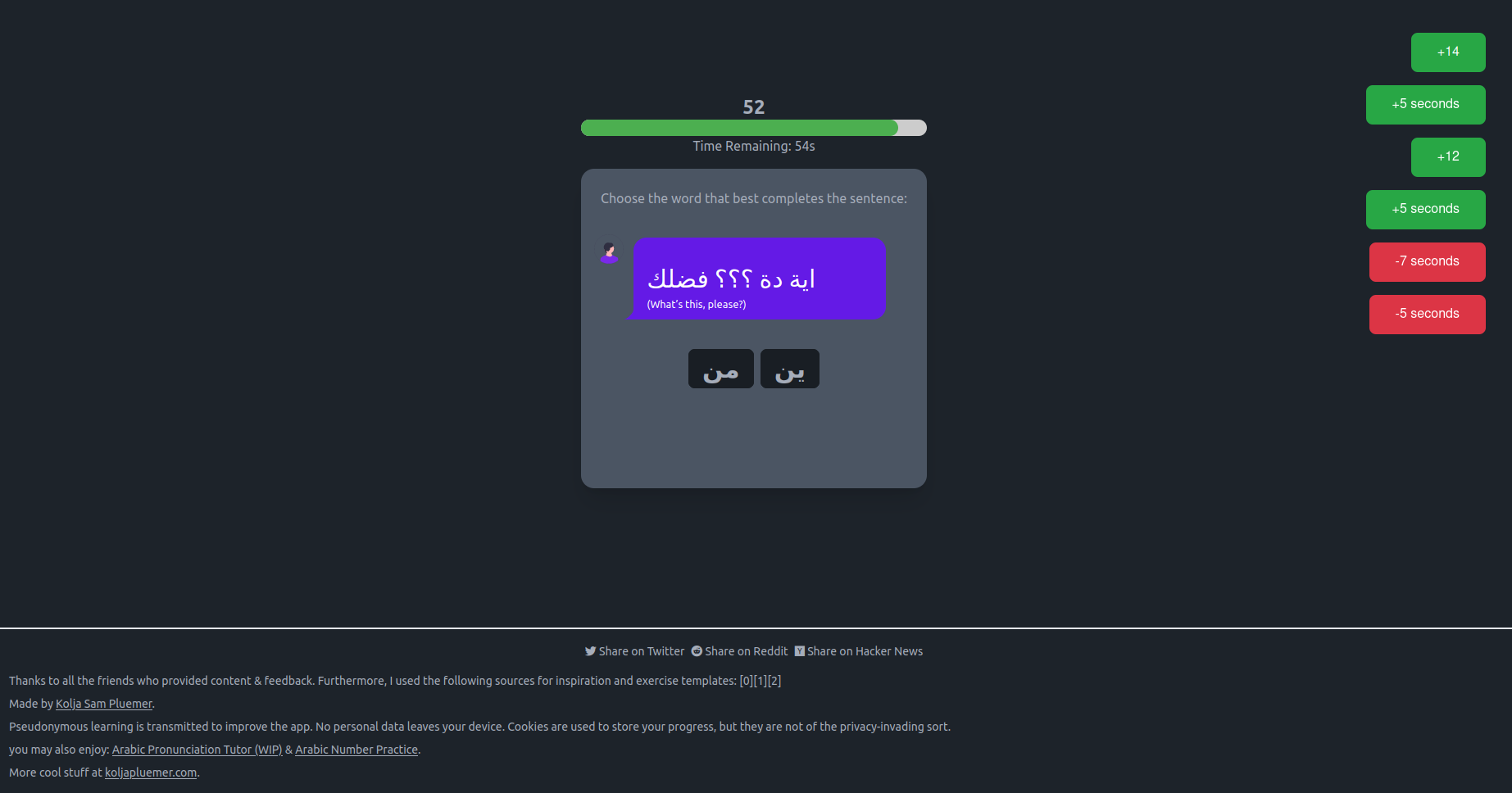 .
.
Recently, I brought my Egyptian phrase learning game to a state that I’d call an MVP. In the last months, across various experiments and projects, I learned two things:
Making a good game is very hard. Making a good learning game is even harder.
This project here is the first time where I managed to make something…somewhat fun? It’s definitely not riveting, but it brings something to the table that it’s older sister, my Arabic number learning game decidedly does not.
Here is my post-hoc attempt to explain why that is:
- I managed to build a mechanic that offers user choice: You can think about an exercise longer, probably improving the chance that you’ll get it right, but loosing seconds all the time - or you take the rest and just press one of the buttons.
- The - admittedly limited - complexity and interaction of mechanics adds some replay value: Sometimes you hit a nice streak and get so many extra seconds and points, while other runs feel “unlucky”. Even the concept of having a run in the first place is new.
- Timed exercises runs give a clear beginning and end, and therefor an intermittent goal (as opposed to flashcard following flashcard, forever).
Definitely far from perfect, but let’s see how applicable these wins are to future projects.